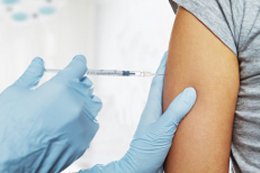 Shoulder Injury Related to Vaccine Administration (SIRVA) can take a variety of forms, each with its own effects and long-term prognosis. While most people diagnosed with SIRVA will eventually recover, recovery options vary, and a person’s individual health profile can have a significant impact on the challenges, costs and duration of the recovery process.
Shoulder Injury Related to Vaccine Administration (SIRVA) can take a variety of forms, each with its own effects and long-term prognosis. While most people diagnosed with SIRVA will eventually recover, recovery options vary, and a person’s individual health profile can have a significant impact on the challenges, costs and duration of the recovery process.
Under the National Vaccine Injury Compensation Program (VICP), a SIRVA diagnosis has both medical and legal implications. While everyone’s circumstances are unique, here are some general steps that can aid in the medical and financial recovery processes: Continue reading

 The measles, mumps and rubella (MMR) vaccine has recently been in the news as a result of reports of measles outbreaks in several parts of the country. According to the
The measles, mumps and rubella (MMR) vaccine has recently been in the news as a result of reports of measles outbreaks in several parts of the country. According to the 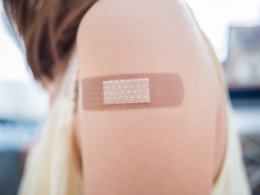 With vaccine injections, it is normal to experience acute stinging or dull pain that dissipates in the hours following the vaccination. It is not normal for this pain to linger, worsen or spread to other parts of the arm or shoulder. Unfortunately, while this pain is not normal, studies show that it is becoming
With vaccine injections, it is normal to experience acute stinging or dull pain that dissipates in the hours following the vaccination. It is not normal for this pain to linger, worsen or spread to other parts of the arm or shoulder. Unfortunately, while this pain is not normal, studies show that it is becoming  “Any vaccine can cause side effects.” While all vaccines recommended for use in the U.S. are considered safe for the vast majority of the population (with exceptions for individuals with certain medical conditions), the Centers for Disease Control and Prevention (CDC) wants vaccine recipients to be aware that certain
“Any vaccine can cause side effects.” While all vaccines recommended for use in the U.S. are considered safe for the vast majority of the population (with exceptions for individuals with certain medical conditions), the Centers for Disease Control and Prevention (CDC) wants vaccine recipients to be aware that certain  The Food and Drug Administration (FDA) has approved a new vaccine that is being billed as “six vaccines in one.” As reported by
The Food and Drug Administration (FDA) has approved a new vaccine that is being billed as “six vaccines in one.” As reported by 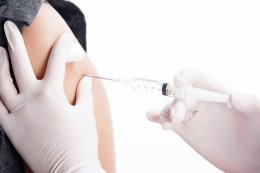 In late 2018, the U.S. Food and Drug Administration (FDA) announced expanded approval of the Gardasil 9 human papilloma virus (HPV) vaccine. Previously approved for administration to males and females between the ages of 9 and 26, Gardasil 9 is now an approved HPV vaccine for men and women through 45 years of age.
In late 2018, the U.S. Food and Drug Administration (FDA) announced expanded approval of the Gardasil 9 human papilloma virus (HPV) vaccine. Previously approved for administration to males and females between the ages of 9 and 26, Gardasil 9 is now an approved HPV vaccine for men and women through 45 years of age.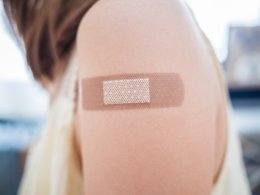 The Centers for Disease Control and Prevention (CDC) recommend an annual flu shot for everyone beginning at six months of age, subject to limited exceptions for individuals who present certain risk factors. The general recommendation to get vaccinated includes women who are pregnant. According to the CDC:
The Centers for Disease Control and Prevention (CDC) recommend an annual flu shot for everyone beginning at six months of age, subject to limited exceptions for individuals who present certain risk factors. The general recommendation to get vaccinated includes women who are pregnant. According to the CDC: According to a
According to a 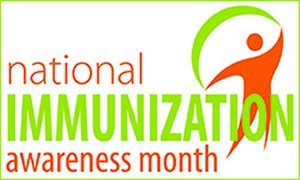 August is National Immunization Awareness Month. Sponsored by the National Public Health Information Coalition (NPHIC) and supported by the Centers for Disease Control and Prevention (CDC), National Immunization Awareness Month is intended to help “promote the importance of immunizations,” and spread accurate information about the safety and risk factors associated with all types of CDC-recommended vaccinations.
August is National Immunization Awareness Month. Sponsored by the National Public Health Information Coalition (NPHIC) and supported by the Centers for Disease Control and Prevention (CDC), National Immunization Awareness Month is intended to help “promote the importance of immunizations,” and spread accurate information about the safety and risk factors associated with all types of CDC-recommended vaccinations.  While vaccinations are routine procedures that carry strong recommendations from the Centers for Disease Control and Prevention (CDC), they still carry certain risks. Flu shots, tetanus shots, and other CDC-recommended vaccinations are known to cause a variety of injuries and illnesses, and errors during the vaccine administration process can lead to various types of painful and debilitating shoulder injuries.
While vaccinations are routine procedures that carry strong recommendations from the Centers for Disease Control and Prevention (CDC), they still carry certain risks. Flu shots, tetanus shots, and other CDC-recommended vaccinations are known to cause a variety of injuries and illnesses, and errors during the vaccine administration process can lead to various types of painful and debilitating shoulder injuries.